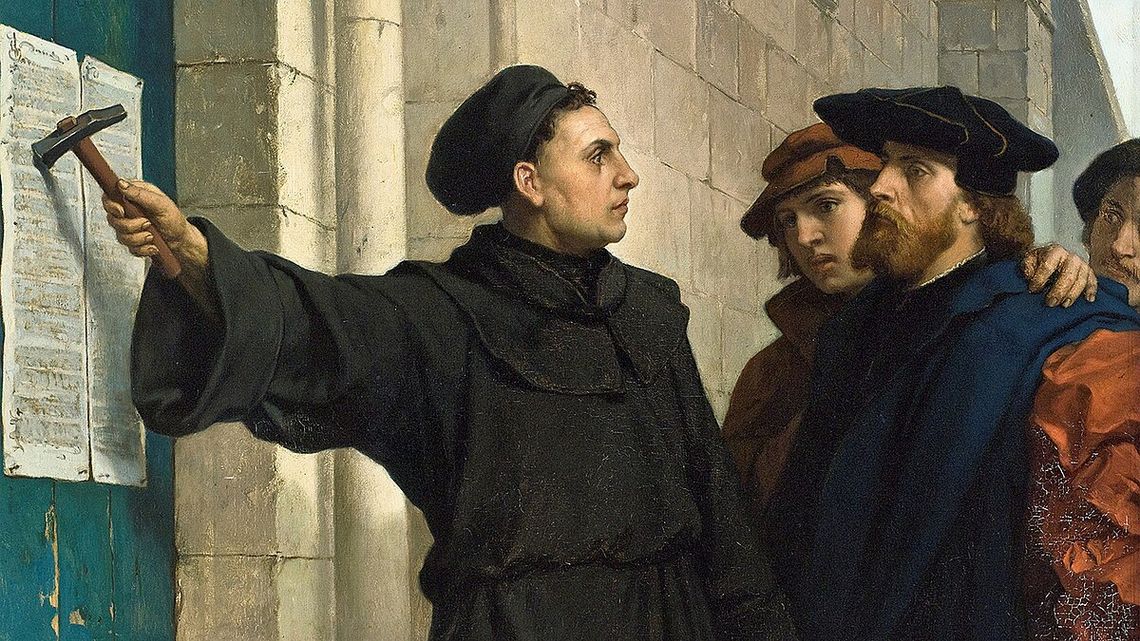By Kenneth A. McDade
As children don their costumes and pumpkins illuminate porches each October 31, few pause to remember another monumental event that occurred on this date over 500 years ago. On October 31, 1517, a German monk named Martin Luther decided to take a stand—quite literally—by strolling up to the doors of the Castle Church in Wittenberg and nailing a list of 95 theses (or points of debate) to its wooden planks. What was intended to be a friendly invitation for discussion quickly spiraled into a movement that would send shockwaves across Europe and forever alter Christianity.
Luther’s grievances weren’t rooted in rebellion, but in deep conviction. At the core of his protest was the belief that the Church had strayed from the true teachings of Scripture. He was particularly disturbed by the sale of indulgences—essentially, “forgiveness for sale.” Luther firmly believed that salvation couldn’t be bought or bartered, but was a divine gift of grace, generously bestowed by God.
The act of nailing those theses wasn’t the grand act of defiance that many envision; it was more like sending an academic memo. Yet, the ideas within those pages were potent—and perilous to the established Church. Thanks to the brand-new printing press—think of it as the 16th-century equivalent of a viral tweet—Luther’s theses spread like wildfire across Europe, outpacing any attempts to contain them. What started as an intellectual discussion soon morphed into a spiritual revolution.
Luther was summoned to defend his writings before Church leaders. At the Diet of Worms in 1521 (yes, that’s really what it was called), he famously refused to recant unless convinced by Scripture itself, declaring, “Here I stand; I can do no other.” With those bold words, he stood firm against both emperor and pope, asserting that Scripture, not tradition, should reign supreme.
Forced into hiding for his safety, Luther used that time wisely—he translated the New Testament into German, granting ordinary people access to God’s Word in their own language for the very first time. His writings and sermons ignited a flame in others across Europe—think John Calvin and Ulrich Zwingli—who also took up the cause of a faith grounded in the Bible rather than bureaucratic red tape.
Luther’s impact extended well beyond the realm of religion. The Reformation championed literacy, individual thought, and personal conscience. It reshaped governments, questioned absolute authority, and helped lay the groundwork for the modern concept of freedom of belief.
Though centuries have passed, the reverberations of that hammer strike can still be felt in churches worldwide whenever a believer opens a Bible, sings a hymn, or prays in their native tongue.
So, as we hang cobwebs and carve jack-o’-lanterns this Halloween, let’s take a moment to reflect on another significant event that illuminated the darkness in a much different way. On that autumn morning in Wittenberg, one monk’s hammer struck not just a church door—but the very conscience of the world.


Comment
Comments